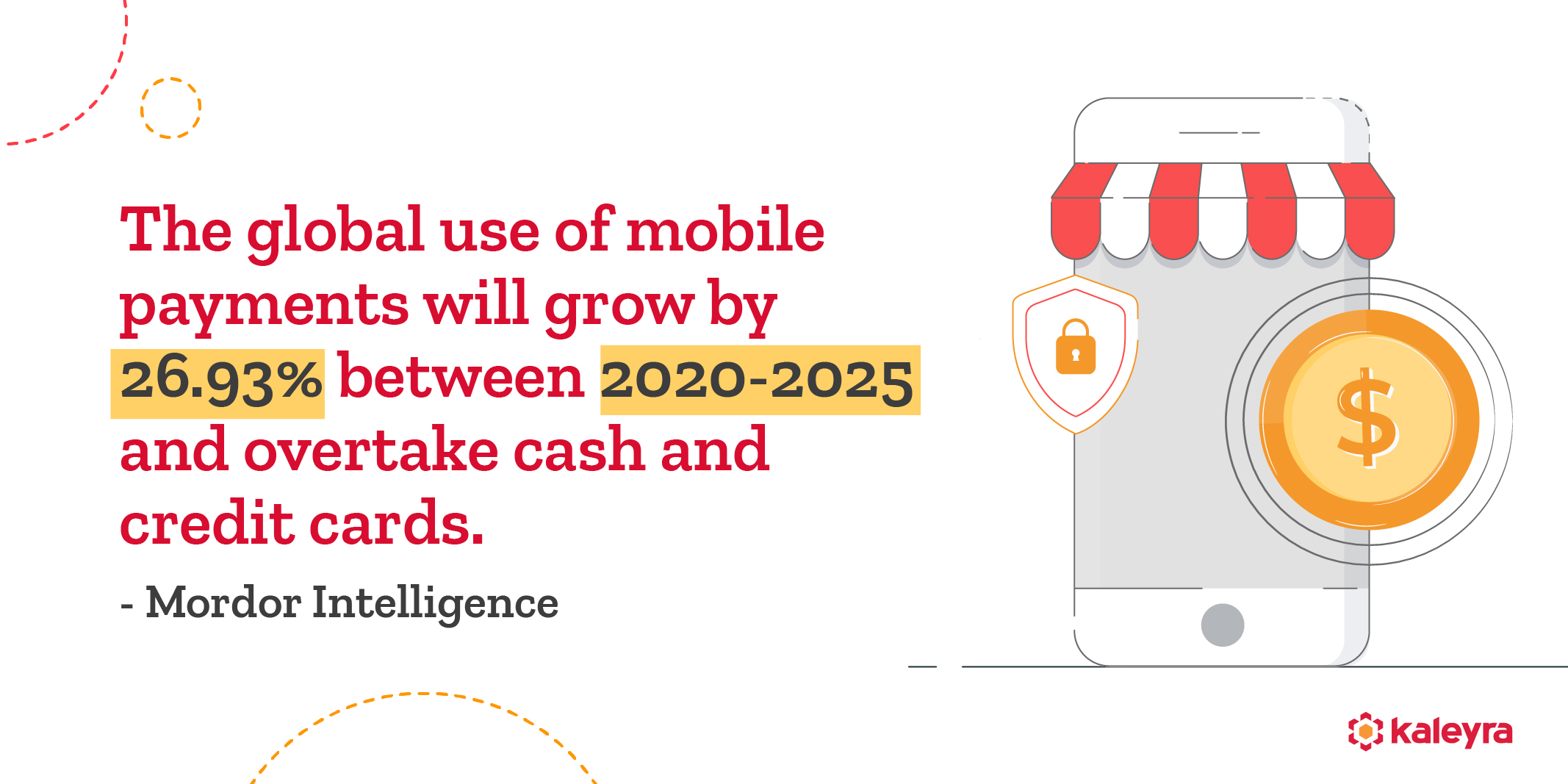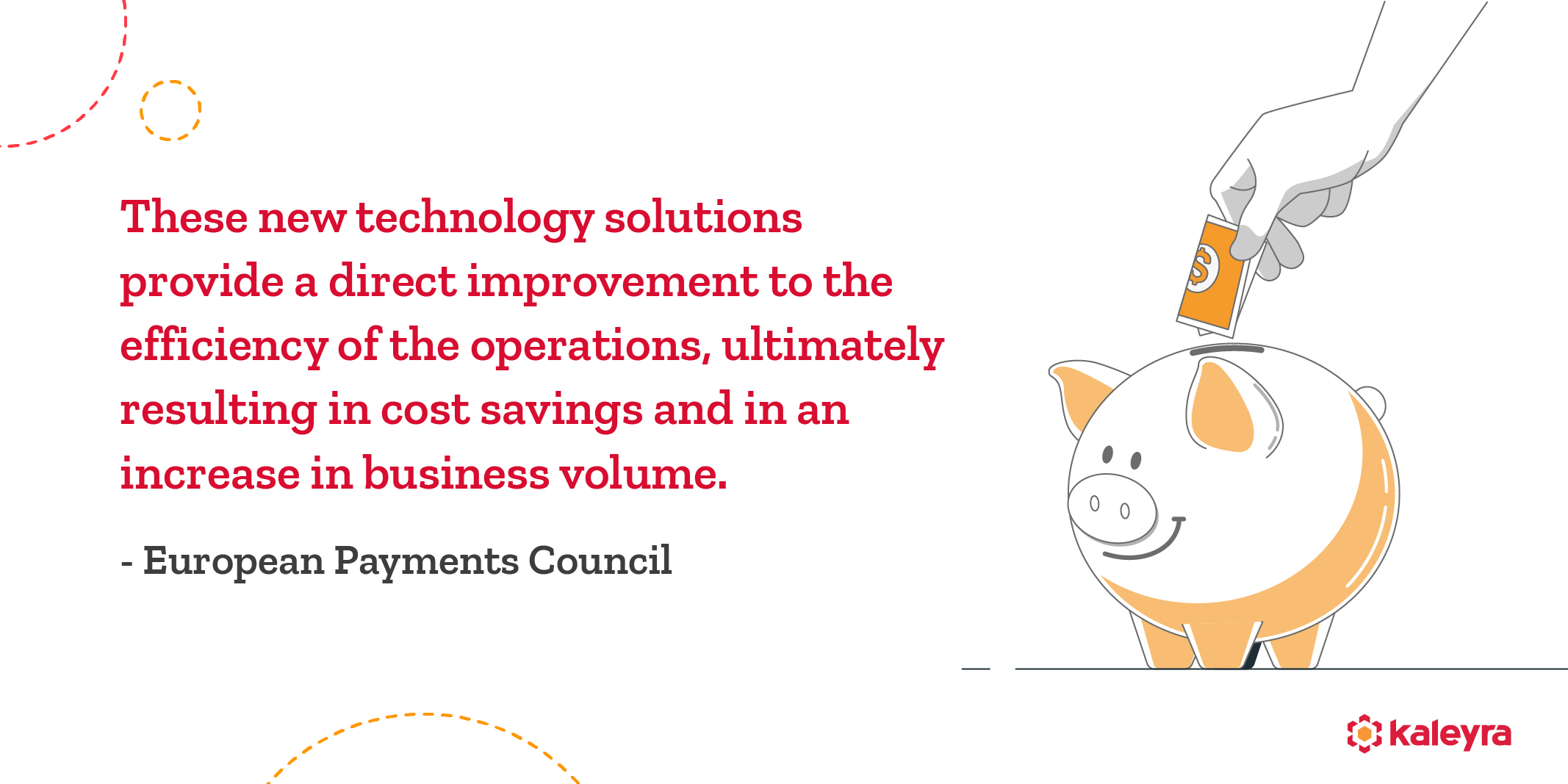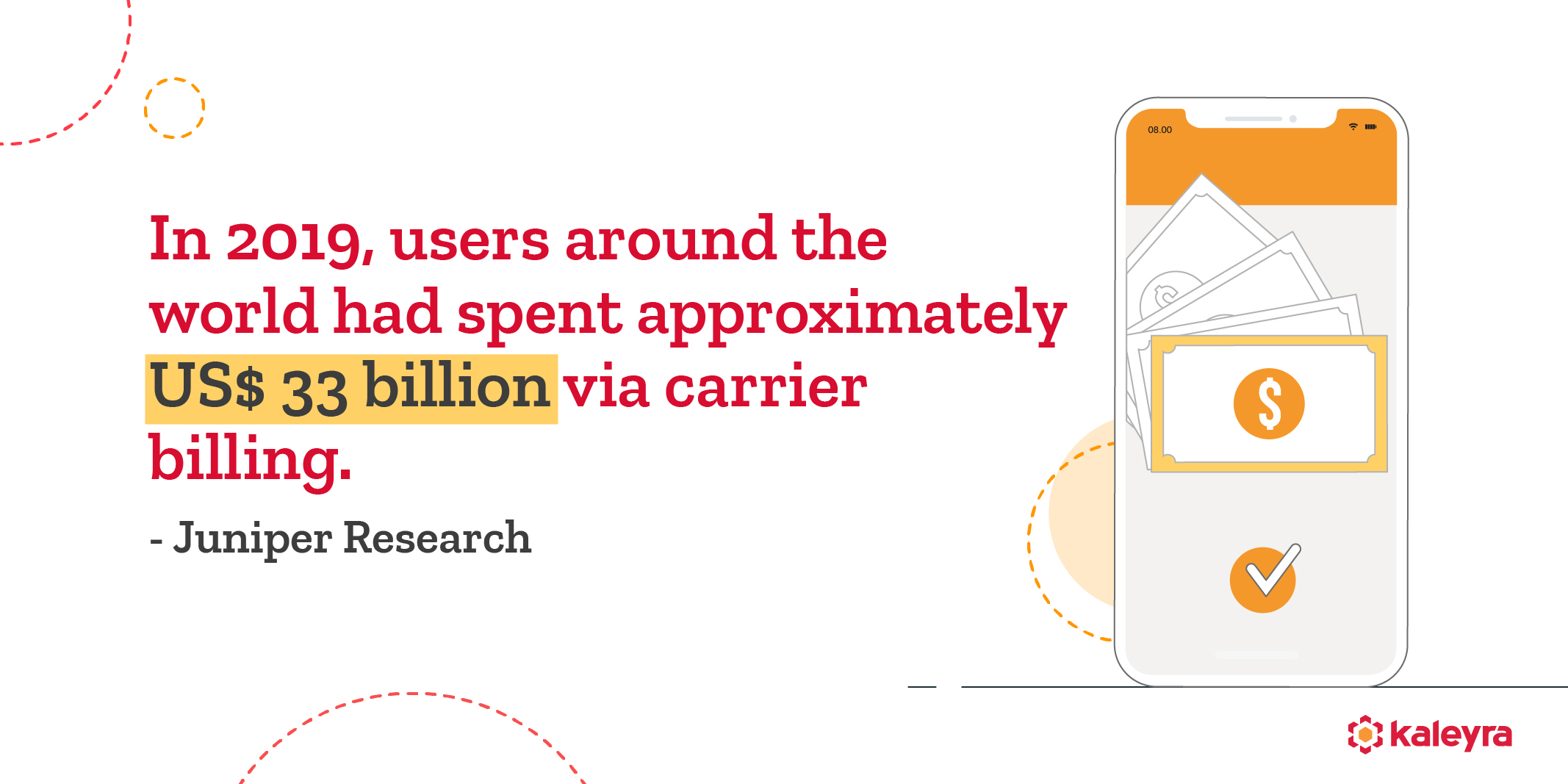3 min read
Benefits of Mobile Payments for Consumers
Experts across industries have recognized the benefits of mobile payments for consumers. Mobile pay systems are a widely accepted form of transactions that take place directly from the user’s mobile device, without the requirement of cash, cheque, or physical copies of credit and debit cards. These are generally accompanied by two-factor authentication to verify the user’s identity before the transaction is completed.
Mobile payment apps and solutions offer a remote, secure, prompt, and accurate alternative to traditional modes of payment. Given how simple and convenient they are, they have gained immense popularity across the world in recent years.

Benefits of Mobile Payments for Consumers
Mobile payments offer a wide range of benefits, both to the providers as well as the consumers. To the mobile network operators and services providers, these translate to an additional source of revenue, and for the consumer, it opens up a new form of payment that is quick, easy, and independent of their bank account.
1. Offer Greater Security
By their sheer nature of being wholly digital, mobile payments immediately cut down the need for users to carry cash, cheques, or credit cards. All the user then is left to take care of is their mobile device. This reduces the burden on the user to stay protected from theft, burglary, or credit card fraud.
In the case of mobile pay that are done through digital credit or debit cards, or mobile wallets linked to bank accounts, payment information is encrypted during transmission, making the account and card details inaccessible to stealers.
2. Safer Payments
Mobile payments are often processed with extra layers of biometric or multifactor authentication such as fingerprint scans, facial recognition, code verification, etc., ensuring payments are genuine and not fraudulent.
According to a study by Visa, forty-three percent of British consumers feel equally comfortable buying high-value items, like vacations and electronics, on a mobile device as they do while conducting small transactions, like purchasing bus or train tickets.

Ensure Higher Credit Privacy
Not everyone is comfortable showing which card they own or demonstrating their credit scores with the type of credit card they use. Mobile Payments are a clean way to ensure the privacy of the user’s credit reality. They also save the payer from exposing how much cash they have or the contents inside their wallet.
Types of Mobile Payments
While there are multiple ways to collect mobile payments — such as through mobile wallets like Apple Pay, Google Pay, Amazon Pay, or Samsung Pay; mobile P2P services like PayPal, Venmo, or Zelle; NFC payments; QR code payments, and credit card tokenization — in this article, we will focus on Carrier Billing methods.

Carrier Billing can be used to purchase tickets, gaming extensions, streaming subscriptions, or even make donations to causes and cast votes to the user’s favorite contestant. Billing-to-carrier is simple, safe, and independent of bank transmissions, making it an excellent choice for mobile network operators and digital services providers to consider while expanding to both underdeveloped and developed markets.
Let’s take a look at the two types of Carrier Billing services that are growing in popularity these days:
Direct Carrier Billing (DCB)
Also known as Direct Operator Billing, Direct Carrier Billing (DCB) is a pure telco payment method that requires the user only to enter their phone number to make a payment. Additional ways of user authentication, such as confirmation codes verified via SMS or call, may or may not be required to process the payment.
Direct Carrier Billing, as opposed to card-based payments, offers a much shorter checkout flow since it does not require the user to share their full name, card number, home address, and other lengthy details. This results in speedy completion of purchases, lower cart abandonment rates, and a substantial increase in conversions.
Furthermore, Direct Carrier Billing can be a huge success in underbanked countries or those with low credit card but high mobile device penetration, like India.
Premium SMS (PSMS) Payments
Premium SMS is a form of direct-to-operator billing wherein the user sends an SMS using a unique short-code (3-7 digit contact number) and its charges are billed to their mobile credits. It is important to note that the charges incurred for sending Premium SMS are much higher than those of regular SMS.
Premium SMS service is often used by charities and NGOs to invite donations, or reality shows like Big Brother to invite votes from viewers. Mobile users may also subscribe to jokes, horoscope, trivia, or caller tunes with Premium SMS.
The Future of Mobile Payments
A study by Juniper Research showed consumer spend via the mechanism will rise from $28 billion in 2018 to $90 billion by 2024, and the proportion of global digital content paid for via Carrier Billing will also double over the five years between 2019 and 2024. Direct Carrier Billing methods are likely to extend to physical goods’ stores in markets with high mobile phone usage and easy operator billing options.
Carrier Billing seems like a promising avenue for telecom operators and merchants to add a new source of revenue. Moreover, the myriad benefits of mobile payments for consumers means that more industries are adopting these solutions for better customer satisfation.

Prarthana Sachdev
Lead - Content Writer at Kaleyra
